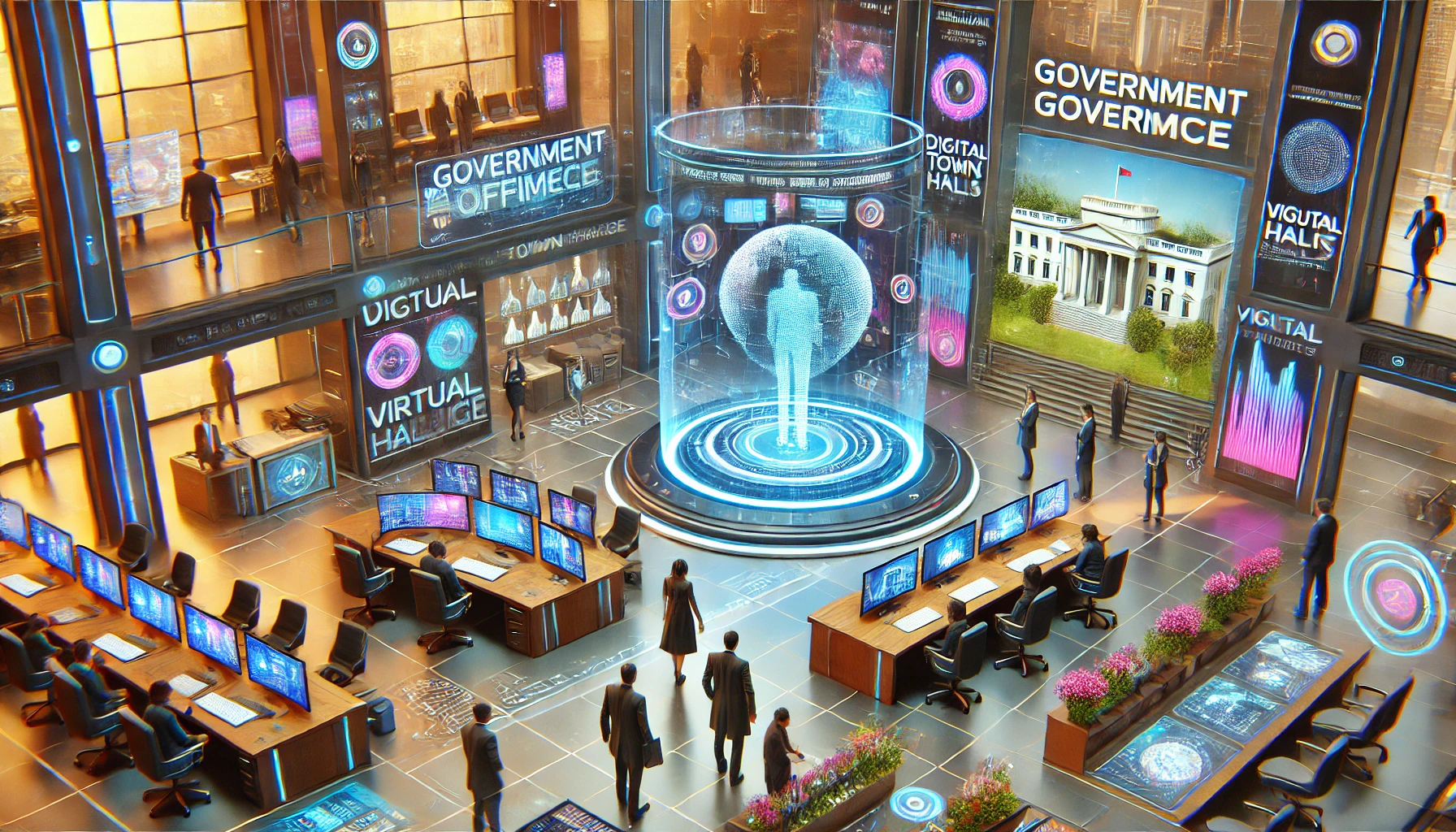The Future of Public Services: How the Metaverse is Transforming Government Operations
Governments are increasingly leveraging the Metaverse to enhance service delivery and citizen engagement, despite challenges like high costs and privacy concerns. Continued technological advancements and regulatory developments are expected to facilitate greater adoption and innovation in this space.

The Metaverse is increasingly becoming a vital tool for governments to enhance their interactions with constituents and improve service delivery. Research by Nir Kshetri from the Bryan School of Business and Economics at the University of North Carolina, Yogesh K. Dwivedi from the Digital Futures for Sustainable Business & Society Research Group at Swansea University, and Marijn Janssen from the Delft University of Technology underscores this trend. Governments worldwide are beginning to embrace this technology, although the extent and nature of adoption vary. The UAE is a notable example, where the Ministry of Economy has established a headquarters in the Metaverse, aiming to foster connections among various stakeholders, including governments, global corporations, and the public. Similarly, Metaverse Seoul, a virtual replica of South Korea's capital, provides a platform for public services like tax counseling, youth mentoring, and access to e-books. This initiative is expected to be fully operational by 2026. Other examples include Finland’s Tampere city, which is exploring Metaverse applications in mobility, healthcare, and security, and Norway’s tax authority, which has opened virtual offices in Decentraland to provide tax-related services.
Navigating Technical Challenges
Despite its potential, the Metaverse faces significant challenges in government application. Technical limitations, such as the high cost and limited usability of AR and VR headsets, hinder widespread adoption. For instance, Meta’s Quest Pro headset, though advanced, still exhibits several limitations that affect user experience. Microsoft's HoloLens, despite being used by the U.S. Army, has faced issues such as discomfort and technological glitches. Moreover, concerns about privacy, security, and the risk of exacerbating digital divides are substantial barriers. The Metaverse can make government employees less transparent and less responsive to citizens’ needs, and the high cost of devices may limit accessibility, particularly in low-income regions. There are also risks of governments not being in control, impersonated, or invisible within the Metaverse due to the lack of appropriate regulatory frameworks to govern this new digital space. The decline of the Metaverse's popularity among some tech companies and the associated risks and costs of transitioning to a new medium may lead to businesses’ and citizens’ reluctance to adopt Metaverse-based services.
Unleashing the Benefits of Metaverse
The benefits, however, are compelling. The Metaverse can enhance service delivery during crises, such as the COVID-19 pandemic, by providing alternative channels for accessing benefits and services. In Russia, digital government platforms were crucial during the pandemic for distributing benefits and processing complaints. The Metaverse also offers richer, more interactive communication methods, potentially transforming traditional government functions and fostering greater citizen engagement. For example, South Korea’s Digital New Deal initiative includes a significant investment in Metaverse technologies, aiming to enhance public services and foster innovation. The UAE’s General Pension and Social Security Authority uses an interactive Metaverse platform to facilitate live chats with customer service agents, demonstrating the potential for real-time communication. Additionally, the Metaverse can support international relations and attract foreign investments, as seen with Israel’s Metaverse embassy in South Korea and Barbados’s virtual embassy in Decentraland.
Researching Future Directions
Future research should focus on understanding the specific benefits and drawbacks of Metaverse applications in government, identifying facilitators and barriers, and developing comprehensive regulatory frameworks to address privacy, security, and accessibility issues. This includes investigating the role of public-private partnerships, which have been pivotal in countries like South Korea and China, where collaborative efforts are driving the development of Metaverse applications. The Metaverse presents an opportunity for governments to innovate and improve their service delivery, making them more efficient, transparent, and responsive to the needs of their citizens.
Technological Advancements and Regulations
Moreover, as technological advancements continue, the Metaverse is likely to become more integrated into government operations. For instance, advancements in generative AI are streamlining content creation in the Metaverse, making it easier and faster to develop virtual environments. This progress, coupled with regulatory developments like the UK’s Online Safety Bill, which includes new Metaverse protections, and South Korea’s regulatory amendments for the Metaverse, is expected to facilitate greater adoption of Metaverse applications in the government sector. The Metaverse can also help achieve various social, political, and economic goals. For instance, it can institutionalize democratic practices by promoting citizen interactions and engaging them in decision-making processes. Metaverse Seoul’s features, such as virtual town halls and public forums, provide immersive 3D experiences that can enhance citizen engagement and participation.
Collaboration and Information Sharing
The Metaverse can be a platform for collaboration and information-sharing, increasing efficiencies and cooperation among government agencies. This can be particularly beneficial in areas like urban planning and disaster response, where real-time data and simulations can aid decision-making and coordination. In summary, while the Metaverse faces significant challenges, its potential to transform government service delivery and citizen engagement makes it a promising avenue for future development. The ongoing advancements in technology and regulatory frameworks will likely address current barriers, paving the way for a more immersive, interactive, and efficient government service landscape.
- READ MORE ON:
- Metaverse
- AR
- VR
- Metaverse-based services
- COVID-19 pandemic
- Metaverse applications
- FIRST PUBLISHED IN:
- Devdiscourse
ALSO READ
Embraer's Soaring Success: Record Q4 Aircraft Deliveries
Trump's Greenland Gambit: Strategic Arctic Ambitions Unveiled
Machado's Return Sparks Hope for Venezuela's Democratic Revival
Ohio Vandalism: Intruder Targets VP JD Vance's Residence
Polarized Memories: The Ongoing Battle Over January 6's Legacy










